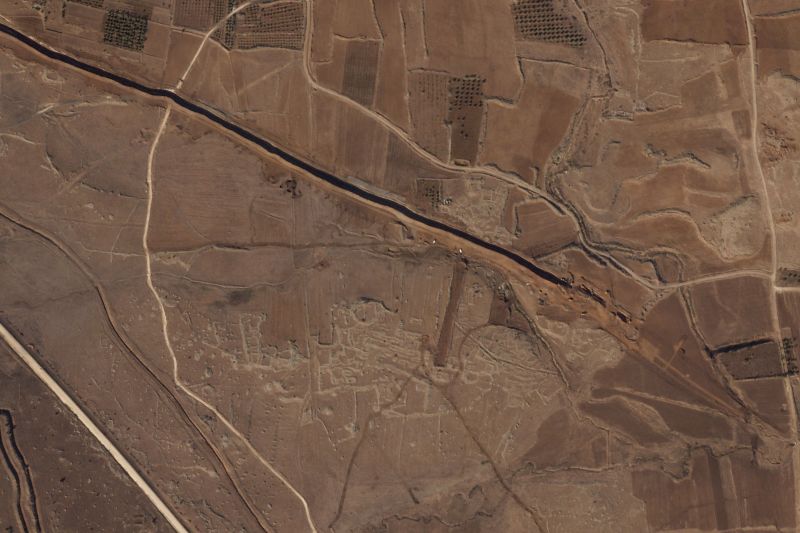 While official statements from the US suggest that Israel is doing enough to bring aid into Gaza, reports from on the ground in Gaza often paint a starkly different picture. Aid organizations and local residents frequently report shortages of food, medical supplies, and other basic necessities. They argue that despite the aid allowed by Israel, the overall blockade on Gaza – which limits not just aid but imports, exports, and the movement of people – is the primary factor contributing to the humanitarian crisis in the region.
Several restrictions imposed by Israel have significantly hampered the flow of goods and services into Gaza. For instance, Israel forbids the import of many building materials as they are classified as ‘dual-use’ items that could potentially be used for military purposes. Resultantly, the reconstruction of infrastructure heavily damaged during conflicts is excessively delayed.
Consequently, there is a vast discrepancy between the official position of the US and the reality faced by Gaza’s residents. This has led to international criticism and calls for Israel to lift the blockade on Gaza. Such a complex scenario requires delicate handling, diplomatic talks, and considerations from all involved parties.
While official statements from the US suggest that Israel is doing enough to bring aid into Gaza, reports from on the ground in Gaza often paint a starkly different picture. Aid organizations and local residents frequently report shortages of food, medical supplies, and other basic necessities. They argue that despite the aid allowed by Israel, the overall blockade on Gaza – which limits not just aid but imports, exports, and the movement of people – is the primary factor contributing to the humanitarian crisis in the region.
Several restrictions imposed by Israel have significantly hampered the flow of goods and services into Gaza. For instance, Israel forbids the import of many building materials as they are classified as ‘dual-use’ items that could potentially be used for military purposes. Resultantly, the reconstruction of infrastructure heavily damaged during conflicts is excessively delayed.
Consequently, there is a vast discrepancy between the official position of the US and the reality faced by Gaza’s residents. This has led to international criticism and calls for Israel to lift the blockade on Gaza. Such a complex scenario requires delicate handling, diplomatic talks, and considerations from all involved parties.
The US says Israel is doing enough to bring aid into Gaza. On the ground it is a different story

 While official statements from the US suggest that Israel is doing enough to bring aid into Gaza, reports from on the ground in Gaza often paint a starkly different picture. Aid organizations and local residents frequently report shortages of food, medical supplies, and other basic necessities. They argue that despite the aid allowed by Israel, the overall blockade on Gaza – which limits not just aid but imports, exports, and the movement of people – is the primary factor contributing to the humanitarian crisis in the region.
Several restrictions imposed by Israel have significantly hampered the flow of goods and services into Gaza. For instance, Israel forbids the import of many building materials as they are classified as ‘dual-use’ items that could potentially be used for military purposes. Resultantly, the reconstruction of infrastructure heavily damaged during conflicts is excessively delayed.
Consequently, there is a vast discrepancy between the official position of the US and the reality faced by Gaza’s residents. This has led to international criticism and calls for Israel to lift the blockade on Gaza. Such a complex scenario requires delicate handling, diplomatic talks, and considerations from all involved parties.
While official statements from the US suggest that Israel is doing enough to bring aid into Gaza, reports from on the ground in Gaza often paint a starkly different picture. Aid organizations and local residents frequently report shortages of food, medical supplies, and other basic necessities. They argue that despite the aid allowed by Israel, the overall blockade on Gaza – which limits not just aid but imports, exports, and the movement of people – is the primary factor contributing to the humanitarian crisis in the region.
Several restrictions imposed by Israel have significantly hampered the flow of goods and services into Gaza. For instance, Israel forbids the import of many building materials as they are classified as ‘dual-use’ items that could potentially be used for military purposes. Resultantly, the reconstruction of infrastructure heavily damaged during conflicts is excessively delayed.
Consequently, there is a vast discrepancy between the official position of the US and the reality faced by Gaza’s residents. This has led to international criticism and calls for Israel to lift the blockade on Gaza. Such a complex scenario requires delicate handling, diplomatic talks, and considerations from all involved parties.

